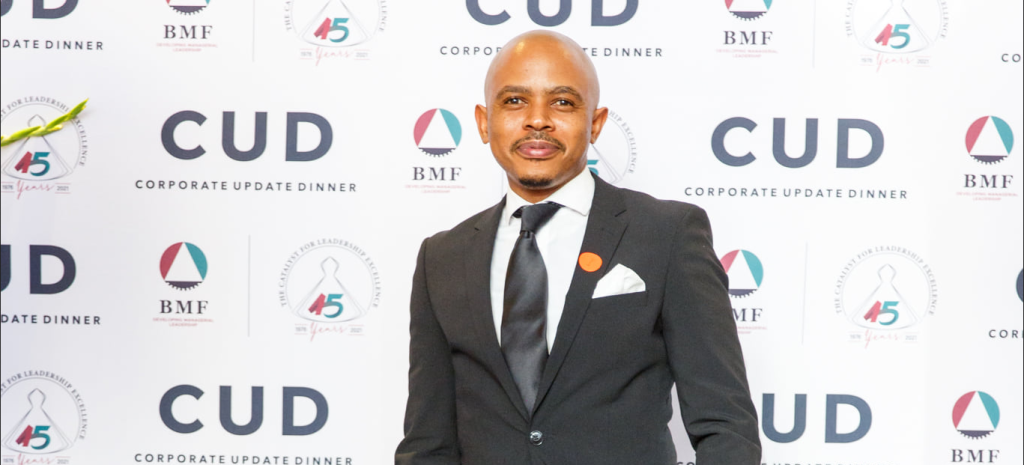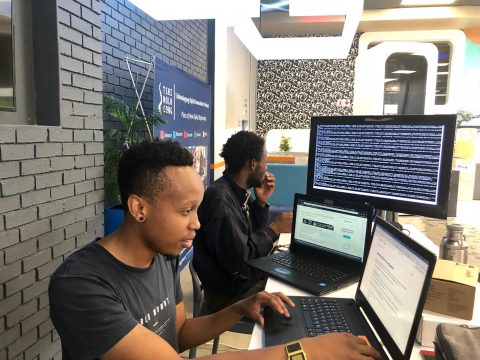African Leader
Ubuntu-Driven Leadership: For Meaningful Change
We are undoubtedly in a leadership crisis, one that cuts across many spheres of our society. The leadership culture in our country is dramatically different to what we had intended it to be at the dawn of our democracy. While we may have very different views on what leadership is and which leadership practices are replicable, we can agree that a key outcome of good leadership is meaningful change. Otherwise, what is the point? It therefore follows that, at a minimum, leadership must be both effective and responsible. Effective so that change is realised. That change must be managed properly for it to matter in the lives of those being led. It must also be sustainable; if it is to be truly meaningful, it must stand the test of time.
In 2015, Baken Lefa, in a paper published in Studies in Philosophy and Education, had this to say of Ubuntu: “Ubuntu is a capacity in South African culture that expresses compassion, reciprocity, dignity, harmony and humanity in the interests of building and maintaining a community with justice and mutual caring.”
The values leaders need to display
The leadership context of the Black Management Forum (BMF) is one that seeks to drive lasting and sustainable socioeconomic change toward a just and equitable society. It is for this reason that Ubuntu-driven leadership speaks to its objectives of developing leaders who lead with humility, respect, and dignity; leaders who are self-aware, self-critical, and satisfied in the work of the organisation in pursuing an objective greater than themselves. The BMF is not always successful in developing leaders with the above values. We see many examples of how our society has fallen short of these values and has failed in electing leaders who exhibit the appropriate leadership behaviours. There may be many reasons why we have not yet been successful in transforming the country’s leadership culture over the last decade or so. One of these may be that we are possibly not on the same page regarding what it means to have and develop Ubuntu-driven leadership, or a leadership culture with Ubuntu principles as its foundation. Perhaps, along the way, we have forgotten what those very principles are.
A model for meaningful change leadership
The theme for this year’s Black Excellence Awards in the Western Cape is perhaps an opportunity to discuss a leadership model that represents Ubuntu-driven leadership that can be understood within the organisational framework. This leadership model must be one that delivers meaningful change. In short, Ubuntu-driven leadership must be meaningful change leadership, leadership that is both effective and responsible in bringing about change. What becomes meaningful, and what needs to change may vary. Those who lead and those being led must agree on what that means for them.
Our intention here is simply to propose a leadership model that may transform our country’s leadership culture. Every institution, organisation, department, business, and community-based group has a role to play. The BMF’s role is to develop leaders who can deliver meaningful change that will lead to socioeconomic transformation. In simple terms, we seek to live in a country that has addressed the injustices of its past, particularly the economic injustices visited upon the black majority, and which offers an equality of opportunity for all its people.
Meaningful change leadership is outcomes-based and rooted in African servant leadership. It is our interpretation of what Ubuntu-driven leadership looks like in the 21st century. Its theoretical foundation is servant leadership because it promotes performance alongside the wellbeing of stakeholders. Ubuntu-driven leadership is not a novel idea, however, we have not spent enough time spelling out what this means in the organisational framework in terms of inputs, processes, and the intended outcomes. We hope this can be the first step in doing so.
What we need are leaders who, in service of others, are only interested in delivering meaningful change to those they serve. Exercising leadership in the service of others is the foundation for meaningful change leadership. In service of others, meaningful change leadership can be identified by the following leadership behaviours.
- A spirit of solidarity: leaders who are engaged and encourage collaboration.
- Compassion: leaders who are empathetic job resources, and engage members and society authentically.
- Innovation leaders: leaders who encourage co-creation and experimentation.
- Empowerment and responsibility: leaders who nurture proactivity, self-confidence, and accountability.
- Humility: where “success” is not personal, but something greater than any individual leader.
- Dignity and respect: leaders who appreciate everyone’s contribution.
- Accountability: leaders who nurture a culture of accountability and ethical behaviour.
From these leadership behaviours, we can build high-performance organisations. Organisations that can learn and innovate with improved stakeholder and member engagement, organisations where the noise about things that do not matter can be crowded out. It is a leadership model that is people-centred and welcomes change through an innovative, collaborative culture and meaningful conversations. We can learn to listen to understand, rather than to cancel. We can develop a leadership culture that seeks to serve socioeconomic change and growth, rather than just personal professional advancement or material gain.
Leaders are often in positions of great influence and power, which can be used for both good and evil. How leaders chose to exercise this power and influence can have exponential consequences for those they lead. South Africa’s young democracy has seen both sides of this coin. While we have seen many examples of leadership in our country that has brought about meaningful change, they have been too few and far between to become what drives our leadership culture.
The people must come first
The BMF calls for a leadership that can guard against “misleadership”. Built on the principles of Ubuntu, meaningful change leadership can help us develop meaningful change agents – leaders who are effective and responsible, people-centred, ethical, accountable, and who empower others.
The meaningful change leadership model proposed here only seeks to translate what we mean by Ubuntu-driven leadership into leadership behaviours we expect to see and the outcomes we hope to achieve by adopting it. By focusing on people and the quality of their life, and how that can be transformed, we can deliver meaningful change.
It doesn’t matter how many symposiums or indabas we hold or attend, or even how much money we spend in trying to grow the economy and on social programmes if we are not bringing about meaningful change in the lives of South Africans. The disconnect is often because our leaders focus more on the inputs rather than the outcomes. This often leads to an inefficient allocation of resources. While a lot is said to be done, there is very little to show for it. Leaders who are focused on achieving meaningful change, ask the right questions of where time, energy and money is being spent.
Hope
As we celebrate black excellence on 25 March, we hope to consider how we can transform our leadership culture as well. We hope we can engage in the leadership behaviours needed to respond to the current leadership crisis. We hope that what we have presented here is useful in defining a leadership model for South Africa that can bring about meaningful change for our people. We hope that this event and our discussion here can remind us of the Ubuntu principles that were part of our “who we were” for so long. We hope we recognise that these principles are still useful and can be applied to our leadership story.
No matter where that story is being told, be it in business, in public service, civil society or community groups, we all need to be more deliberate about bringing about change. It is our view that the leadership behaviours we have described here, built on the principles of Ubuntu, give us the best chance of achieving
our objectives






 Sign-up and receive the Business Media MAGS newsletter OR SA Mining newsletter straight to your inbox.
Sign-up and receive the Business Media MAGS newsletter OR SA Mining newsletter straight to your inbox.